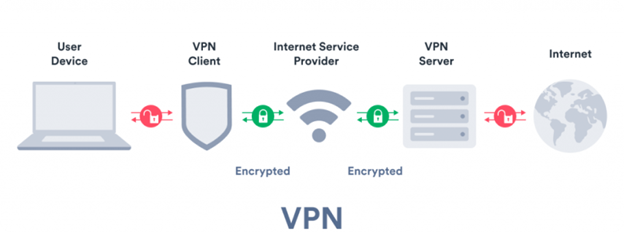
Cybersecurity has taken center stage in the evolving landscape of the internet and connectivity. Small businesses, which were once considered safe from the reach of cybercriminals, are now finding themselves on the frontline of cyber warfare. Unfortunately, many small businesses underestimate their risk level, often due to limited resources or the misconception that only large organizations are targeted.
However, this perceived immunity can become their downfall. Cybercriminals often target small businesses due to their typically less robust security measures. Now more than ever, it’s crucial for small businesses to recognize that cybersecurity isn’t a luxury but a necessity. Ignoring this aspect could lead to devastating consequences, which begs the question — why must small businesses take cybersecurity seriously? Let’s delve into this critical subject further.
The Increasing Importance of Cybersecurity for Small Businesses
Small businesses are often under the impression that they are unlikely targets for cyber attacks. This mistaken belief stems from the notion that hackers are only interested in large corporations with vast resources. However, statistics paint a different picture. According to the Verizon 2023 Data Breach Investigations Report, 83% of breaches involved external actors, the majority of which were financially motivated.
The reality is that small businesses can be easier targets due to their often less stringent security measures. This, coupled with the fact that small businesses are increasingly depending on digital solutions, has made cybersecurity an area of vital importance.
Taking adequate steps toward enhancing cybersecurity isn’t just about warding off potential threats; it’s about laying a foundation for fast growth in the digital age. Many of these steps involve understanding and fulfilling ethical hacker requirements. As we continue to rely more heavily on digital technologies, the need for skilled professionals to identify and address vulnerabilities has never been more significant. By understanding cybersecurity essentials, small businesses can be better prepared to safeguard their digital assets against potential threats.
1. The High Costs of a Data Breach
When small businesses experience a data breach, the costs can be staggering. These expenses aren’t limited to the immediate fallout of an attack. They encompass a range of financial implications, from the tangible, such as legal fees and recovery expenses, to the intangible, like brand damage and loss of customer trust.
According to a study by IBM and the Ponemon Institute, the average data breach cost in 2021 was $4.24 million globally, which may seem overwhelming for small businesses. Although small companies may bear costs lower than large corporations, the relative impact on their financial health can be much greater due to limited resources.
Here are some potential expenses associated with a data breach:
- Recovery Costs: This includes the expense of identifying and fixing the breach, as well as implementing new security measures.
- Legal Expenses: Businesses may face legal consequences and penalties if customer data is compromised.
- Business Interruptions: Breaches often result in significant operational disruptions, impacting productivity and revenues.
2. Regulatory Compliance and Penalties
In today’s data-driven era, businesses large and small must adhere to a host of regulations designed to protect personal and financial information. Laws such as the General Data Protection Regulation (GDPR) in Europe, the California Consumer Privacy Act (CCPA) in the United States, and various other international laws have strict requirements for data security. If a business experiences a data breach due to insufficient cybersecurity measures, it may violate these laws.
Non-compliance doesn’t only tarnish a business’s reputation but can also lead to hefty fines. For instance, under the GDPR, fines can be up to €20 million or 4% of a company’s global annual turnover, whichever is higher. These penalties can be devastating for small businesses. Small businesses protect themselves and their customers by ensuring strong cybersecurity and demonstrating their commitment to regulatory compliance.

3. Loss of Customer Trust
Trust is a critical element in the customer relationship for any business, big or small. When customers entrust a company with their personal information, they expect it to be protected. A data breach shatters this trust, creating a ripple effect of consequences.
85% of customers won’t do business with a company if they have concerns about its security practices. For small businesses, these numbers could be more manageable. With their reputation at stake, winning back customer trust can be a long and challenging journey.
Here are some potential consequences of lost trust:
- Reduced Customer Loyalty: Once trust is broken, customers may think twice before doing business with the company again.
- Loss of Business: With many alternatives available, customers will likely shift to competitors if they perceive a company as unreliable.
- Reputation Damage: In the digital age, news of a breach can spread quickly, causing lasting damage to a company’s reputation.
Cybersecurity is not just a technical issue but a business survival strategy. Protecting customer data should be a top priority for all businesses, regardless of size.
3. Business Continuity Threat
A severe cyber threat can dramatically interrupt a small business’s operations, leading to catastrophic outcomes. When systems go down due to a cyber-attack, the continuity of business services is compromised, causing substantial revenue loss.
For instance, ransomware can halt business operations by locking access to crucial data and systems. This disruption isn’t just costly to fix, but the downtime can also result in missed opportunities and potential clients moving to competitors.
Thus, strong cybersecurity measures are critical not just for data protection but also for maintaining business continuity. Among those measures can be using the best encrypted private browsers for Android to safeguard sensitive information and mitigate cyber threats or investing in a reliable Virtual Private Network (VPN) to ensure secure and private internet connections.
Cybersecurity as a Competitive Advantage
In a market where customers are increasingly concerned about their data security, having robust cybersecurity measures can become a unique selling proposition for small businesses. Customers are likelier to choose a company that prioritizes their data security over one that doesn’t. Among the plethora of tools available to bolster cybersecurity, choosing the right hardware can be a pivotal step for small businesses aiming to enhance their security infrastructure.
For example, a solution such as the Meraki MX250 firewall offers comprehensive security features designed to protect against a wide array of cyber threats. This device not only helps in securing the digital assets of a business but also contributes to the smooth operation of daily activities without compromising on security. For more details on this state-of-the-art device, consider exploring RhinoNetworks’ overview of the Meraki MX250.
- Builds Trust: Customers value their data. Businesses that can demonstrate robust security protocols show they respect and value customer information, building trust.
- Enhances Reputation: Businesses with excellent data security standards will have a competitive edge and a positive reputation.
-
- Reduces Downtime: Effective cybersecurity measures mean fewer disruptions to business operations.
- Compliance with Regulations: Following cybersecurity regulations avoids penalties and can impress clients who value businesses that uphold these standards.
- Attracts Partnerships: Other businesses and potential partners value secure companies, as it reduces their risk too.
- Reduces Financial Losses: Fewer cyber threats mean fewer monetary losses from data breaches.
Thus, taking cybersecurity seriously can prevent potential threats and enhance a small business’s overall market standing.
Final Words
In today’s interconnected world, cybersecurity should be a top priority for small businesses. With myriad reasons ranging from financial protection and maintaining customer trust to securing business continuity and gaining a competitive edge, there’s an undeniable necessity for small businesses to emphasize cybersecurity.
As cyber threats continue to evolve, businesses must stay abreast of these changes and integrate cybersecurity into their core strategy. Remember, in cybersecurity, prevention is the best defense. Prioritizing cybersecurity today can shield small businesses from significant problems down the line.





